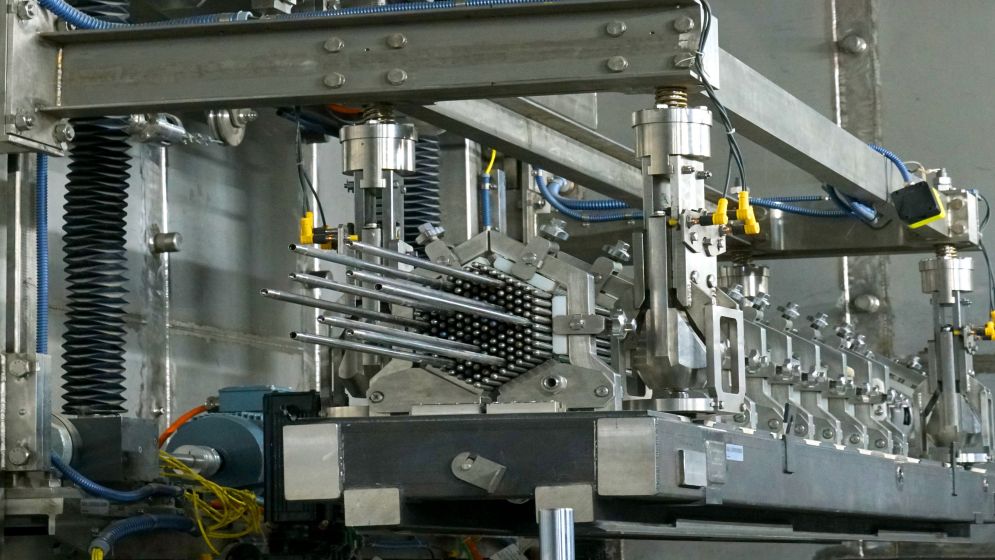Rosatom begins construction of groundbreaking energy complex in Russia's Tomsk region

Photo Credit: Rosatom
Construction has officially begun on the
Pilot Demonstration Energy Complex (PDEC) at the Siberian Chemical Combine in
Russia's Tomsk region, a key project within Rosatom's Fuel Division.
The PDEC will host three innovative,
interconnected facilities: a unit for the manufacturing and refabrication of
dense nitride uranium-plutonium nuclear fuel, a nuclear power plant with an
advanced fast neutron lead-cooled reactor (BREST-OD-300), and a facility for
the reprocessing of irradiated fuel.
For the first time in global nuclear
practice, this complex will feature a nuclear power plant (NPP) equipped with a
fast reactor and a stationary closed nuclear fuel cycle, all on one site.
Once reprocessed, irradiated fuel will be
sent back to the facility for the production of fresh fuel, making the system
largely autonomous and independent of external energy resources.
The first of the three planned facilities
– the unit for fabricating and refabricating nuclear fuel for the BREST-OD-300
reactor – has already been put into pilot operation.
The fully automated facility has
successfully produced its first mockup fuel bundles made of depleted uranium
nitride fuel pellets, designed for the innovative BREST-OD-300 reactor.
Once regulatory approval is obtained for the handling of plutonium, the unit will begin producing the target fuel – mixed dense nitride uranium-plutonium (MNUP) fuel.

Prior to the reactor's first core
loading, over 200 MNUP fuel bundles are expected to be fabricated.
The technology for manufacturing
uranium-plutonium nitride fuel was developed by Rosatom scientists and has
already been successfully tested in Russia's BOR-60 fast research reactor and
the commercial BN-600 fast reactor at the Beloyarsk Nuclear Power Plant.
Alexey Likhachev, CEO of Rosatom,
commented on the significance of the project: “Rosatom is leading the world in
the development of Generation IV nuclear technologies.
According to the International Atomic
Energy Agency (IAEA) classification, this technology offers greater fuel
efficiency, enhanced safety standards, and a significant reduction in nuclear
waste.
All these principles are reflected in the
technological solutions being implemented at the Pilot Demonstration Energy
Complex.”
The BREST-OD-300 reactor, set to be the
world’s first lead-cooled fast reactor, will operate on the principles of
natural safety, ensuring higher efficiency.
Its use of innovative MNUP fuel, derived
from secondary products of the nuclear fuel cycle – depleted uranium and
plutonium – will allow the reprocessing of irradiated fuel assemblies,
drastically reducing both the volume and radioactivity of nuclear waste.
—-

